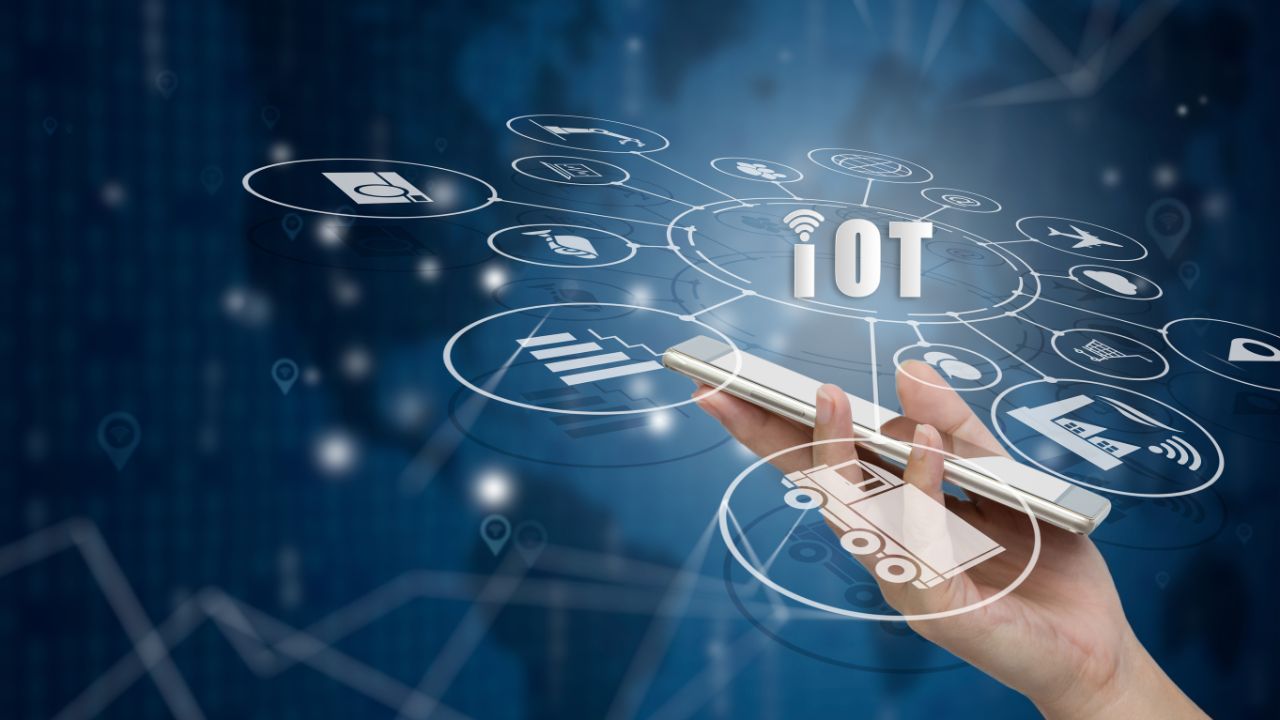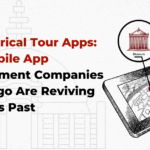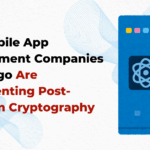
The Internet of Things (IoT) is transforming various industries worldwide, and website development is included in this transformation. As the prevalence of connected devices and intelligent technologies rises, website development services are adapting to address the growing needs of IoT ecosystems. This article will examine the convergence of IoT and web development, highlighting how these services are evolving and what actions a software development company can take to stay aligned with this trend.
What is IoT and Why It Matters for Web Development
The Internet of Things (IoT) encompasses a network of interconnected devices, sensors, and systems that facilitate real-time data exchange. This array of devices, which includes everything from smartwatches to home automation systems, is transforming user behavior by introducing innovative methods of interaction with websites and online platforms.
In the realm of website development services, the emergence of IoT presents both opportunities and challenges. Websites are now required to accommodate unconventional devices, deliver quicker responses, and maintain data security within these interconnected frameworks. Consequently, it is imperative for every software development company to adapt its web development methodologies to align with the expanding IoT landscape.
Key Ways Website Development Services Are Adapting to the IoT Revolution
With the increasing prevalence of IoT devices, website development services are adapting to facilitate seamless connectivity, real-time data exchange, and improved user experiences. This evolution guarantees that websites are responsive, secure, and compatible with the expanding network of smart devices.
1. IoT-Friendly Website Architecture
Contemporary websites require adaptable architectures to facilitate seamless connections and interactions with Internet of Things (IoT) devices. Current web development practices are integrating RESTful APIs and MQTT (Message Queuing Telemetry Transport) protocols, which allow for efficient data exchange between the website and a variety of devices.
- The synchronization of real-time data is essential for presenting updated information from connected devices.
- Websites should be designed to be lightweight to operate effectively on smaller IoT devices that possess limited computational capabilities.
A software development firm specializing in IoT can guarantee that websites are constructed to integrate efficiently with wearables, sensors, or smart appliances.
2. Improving Website Responsiveness for IoT Devices
Numerous IoT devices are equipped with smaller displays, including smartwatches and control panels. Websites need to adjust to these non-traditional screen dimensions and orientations while ensuring user-friendliness.
Key Considerations:
- Mobile-first design principles are increasingly essential due to the rise in interactions via mobile devices.
- The implementation of dynamic scaling and responsive design frameworks, such as Bootstrap and CSS Grid, is vital for supporting IoT interfaces.
Adjusting to the varied device ecosystem enables website development services to deliver cohesive user experiences across different platforms, irrespective of screen dimensions.
3. Enhanced Data Security and Privacy Compliance
IoT ecosystems are characterized by continuous data interchange among devices, which brings forth significant concerns regarding data privacy and cybersecurity. Websites that connect with IoT devices are required to adhere to stringent security protocols to safeguard sensitive user data.
- To mitigate the risk of data breaches during device interactions, secure APIs are essential for these websites.
- Implementing SSL/TLS encryption alongside multi-factor authentication (MFA) is crucial for maintaining data integrity and security.
- Compliance with regulations such as GDPR and CCPA is vital for ensuring that websites are both compliant and reliable.
A software development firm focused on IoT-based websites must also integrate IoT-specific security measures to thwart unauthorized access to interconnected devices.
4. Implementing Real-Time Data Processing on Websites
Websites that engage with IoT devices necessitate real-time data processing to provide current updates from sensors and intelligent systems. This capability is vital for sectors like healthcare, logistics, and smart home management, where prompt responses are crucial.
Technologies Supporting Real-Time Data:
- WebSockets facilitate bidirectional communication between websites and devices, eliminating delays.
- Serverless computing guarantees rapid data processing and display, alleviating the load on the web server.
- Edge computing minimizes latency by handling data close to the originating device.
These technological advancements empower website development services to deliver real-time functionalities, thereby enhancing user experience and overall performance.
5. IoT and the Role of AI-Powered Websites
Artificial intelligence (AI) and the Internet of Things (IoT) are increasingly merging. Numerous websites are now incorporating AI-driven functionalities, including chatbots, predictive analytics, and recommendation systems that utilize data from IoT devices.
Benefits of AI-Driven Websites for IoT:
- Smart home platforms can provide tailored product suggestions by analyzing real-time data from IoT devices.
- Healthcare platforms can track data from wearables to deliver immediate alerts or recommendations.
- E-commerce sites linked with IoT devices can present customized discounts or product packages that reflect user activity.
A software development firm proficient in AI and IoT integration can design highly individualized websites, resulting in improved user interaction.
6. Progressive Web Apps (PWAs) and IoT
Progressive Web Apps (PWAs) are becoming increasingly popular within Internet of Things (IoT) ecosystems. They integrate the most advantageous characteristics of both websites and mobile applications, providing functionalities such as offline accessibility, push notifications, and enhanced performance. Website development services are progressively adopting PWAs to facilitate interactions within IoT environments.
Why PWAs Are Important for IoT:
- Progressive Web Applications (PWAs) are capable of operating without an internet connection, facilitating seamless communication between devices.
- They provide rapid loading times and enhanced performance tailored for IoT platforms that may have restricted processing capabilities.
- Additionally, they enable background synchronization, which permits automatic updates of IoT data once the connection is re-established.
A software development firm can utilize PWAs to create economical and effective web experiences that are compatible with IoT.
Challenges Faced by Website Development Services in Adapting to IoT
There are several challenges associated with the integration of IoT in website development services, despite the many opportunities it presents:
- Complex Integration Needs: Establishing smooth interactions between websites and various IoT devices necessitates expertise in specialized areas.
- Heightened Data Volume: Websites are required to manage substantial data produced by IoT devices, which calls for advanced data processing systems.
- Security Vulnerabilities: The interconnectedness of IoT heightens the risk of cyber threats, thereby prioritizing security measures for web developers.
- Varied Device Compatibility: Websites must ensure optimal performance across a diverse array of devices, each possessing distinct features and limitations.
Conclusion
The Internet of Things (IoT) revolution is significantly altering how websites engage with users and devices. To maintain a competitive edge, website development services must implement IoT-compatible architectures, prioritize data security, and adopt real-time processing capabilities. Furthermore, the integration of artificial intelligence and progressive web applications (PWAs) will enhance the overall value of websites within an IoT framework.
A software development company that comprehends these changing demands can assist businesses in future-proofing their websites, facilitating seamless interactions across various IoT platforms. As the IoT environment continues to evolve, future websites must adapt swiftly to ensure they remain relevant, functional, and user-friendly in this interconnected landscape.
By investing in website development services optimized for IoT, companies can position themselves at the leading edge of innovation, prepared to address the challenges of the future.






 Welcome to Algoace!
Welcome to Algoace!
0 Comments